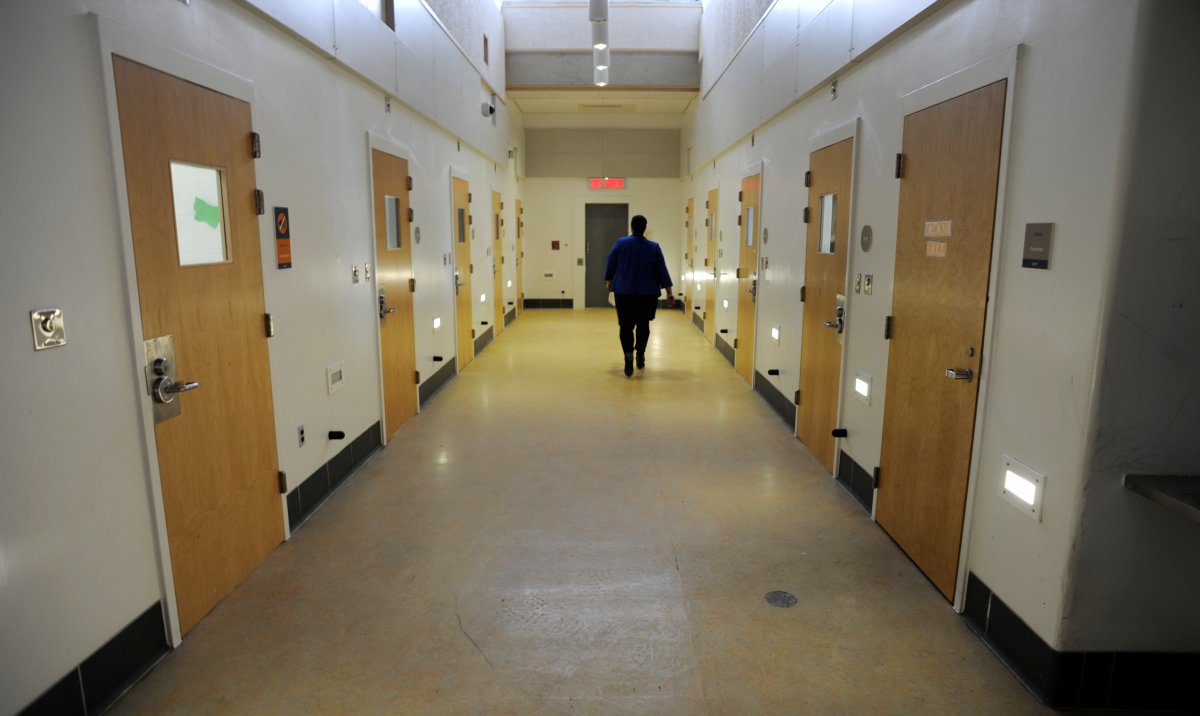Ottawa’s plan to crack down on mentally ill offenders could accomplish the opposite of its intent, critics say – pushing more people with mental illness into a prison system unable to treat them, and putting seriously ill patients in makeshift, less secure accommodation in overflowing forensic hospital wings.

Last week, the federal government unveiled plans to tighten rules determining when to release offenders deemed not criminally responsible for their actions due to mental disorders. The new rules create a “high risk” classification for people who’ve committed a particularly heinous crime, meaning their case is reviewed less often and decided by court, rather than a review board.
The proposed legislation also shifts the emphasis towards public safety and the crime’s impact on the victim. It removes wording requiring a solution that’s “least onerous and least restrictive” for the accused.
“We are giving the courts the powers they need to keep those deemed too dangerous to be released where they should be – in custody,” Prime Minister Stephen Harper said in Vancouver Friday.
But lawyers and forensic psychiatrists argue this tackles a problem that doesn’t exist: They say there is no epidemic of recidivism among people deemed not criminally responsible.
People designated NCR are far less likely to reoffend than their counterparts in the prison system: 7.5 per cent compared to about 40 per cent, according to data compiled by the Centre for Addiction and Mental Health (sources for each figure are the Canadian Journal of Psychiatry and Canada’s Solicitor General, respectively).
- Canadian man dies during Texas Ironman event. His widow wants answers as to why
- On the ‘frontline’: Toronto-area residents hiring security firms to fight auto theft
- Honda’s $15B Ontario EV plant marks ‘historic day,’ Trudeau says
- Canadians more likely to eat food past best-before date. What are the risks?
“There is limited data on the rates of re-offending by NCR accused persons,” Justice department spokeswoman Carole Saindon said in an e-mail. “What we do know about NCR accused persons is that the majority have committed serious acts that brought them into the Review Board system.”
A not criminally responsible classification is not a free pass: They stay, on average, far longer in hospital than convicted offenders do in prison – fifteen times longer for aggravated assault and 30 times longer for mischief, says Patrick Baillie, a lawyer and psychologist with Alberta Health Services.
“In relatively minor offences, people who are found NCR end up spending much more time in a hospital setting, a secure hospital setting, than they would if they had simply pled guilty and been dealt with through the regular justice system,” Me. Baillie said. “Every defence lawyer knows you don’t use an NCR plea unless you are serious about it. … If the notion is that you essentially do no time, that’s not supported by the statistics.”
If the Harper government wants to target recidivism, Mr. Bailie argues, it should focus its attention on those in its prison system – not the comparatively tiny number of offenders deemed not criminally responsible because of their mental illness.
Most people found not criminally responsible have been in the justice system before – but as people tried and convicted in the traditional way, according to Justice Canada statistics. Often they’ve spent time in prison and in a civilian hospital before committing a crime for which they’re found not responsible. And most of them don’t reoffend: Fewer than 10 per cent of people designated NCR had been designated NCR before.
Mental-health advocates fear the new legislation will just mean more stigma for people with mental illness, reinforcing the incorrect assumption that they’re more dangerous than the rest of the population (the opposite is true: they’re more likely to be victims of violent crime and less likely to commit them).
But making harsher penalties for people deemed not responsible for their crimes can have more practical effects, says Sandy Simpson, head of forensic psychiatry at the Centre for Addiction and Mental Health: If NCR designations are especially onerous, lawyers will more likely opt for a guilty plea, instead. That puts more people with mental illness into a prison system ill equipped to deal with them.
“That may bring with it another whole range of problems,” Dr. Simpson said. “There is a risk that this might effectively defeat the purposes the government is trying to achieve.” If mentally ill people have trouble accessing rehabilitative programs in prison and then are simply released when their sentence is up, they could be more likely to reoffend.
At the same time, forensic hospitals are bursting at the seams as it is: Capacity is hovering between 102 and 104 per cent in Ontario, Dr. Simpson said.
Overflow patients are put in interview or seclusion rooms; in some cases, they could be in wards never meant to be used for forensic purposes. “That compromises the safety, to some degree, of people who are in the facility,” Dr. Simpson said.
Having more offenders remaining in custody for longer could exacerbate that crowding, he said. “We don’t have unused capacity to cope with that increase in demand.”



Comments